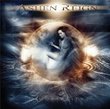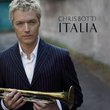| All Artists: Robert Schumann, Franz [Vienna] Schubert, Murray Perahia Title: Schubert/Schuman: Piano Sonatas Members Wishing: 0 Total Copies: 1 Label: Sony Release Date: 10/25/1990 Genre: Classical Styles: Forms & Genres, Sonatas, Historical Periods, Romantic (c.1820-1910) Number of Discs: 1 SwapaCD Credits: 1 UPC: 074644456929 |
Search - Robert Schumann, Franz [Vienna] Schubert, Murray Perahia :: Schubert/Schuman: Piano Sonatas
 | Robert Schumann, Franz [Vienna] Schubert, Murray Perahia Schubert/Schuman: Piano Sonatas Genre: Classical
![header=[] body=[This CD is available to be requested as disc only.]](/images/attributes/disc.png?v=a4e11020) ![header=[] body=[This CD is unavailable to be requested with the disc and back insert at this time.]](/images/attributes/greyed_disc_back.png?v=a4e11020) ![header=[] body=[This CD is unavailable to be requested with the disc and front insert at this time.]](/images/attributes/greyed_disc_front.png?v=a4e11020) ![header=[] body=[This CD is unavailable to be requested with the disc, front and back inserts at this time.]](/images/attributes/greyed_disc_front_back.png?v=a4e11020) |
Larger Image |
CD DetailsSimilar CDs
Similarly Requested CDs
|
CD ReviewsOne of the Best Interpretations of Schubert's D.959 Gideon Pisanty | Israel | 08/26/2002 (5 out of 5 stars) "I was amazed to discover this wonderful performance of Schubert's D.959, by a pianist who I usually consider a bad Schubertist (in the Impromptus and last sonata, for example). In this work, however, he seems to get the very essence of the music. I've listened to many good and bad recordings of the work, notably Uchida, Eschenbach, Bolet (good performances) as well as Serkin, Brendel (worse, to my taste) and many others. The only good rival of this performance is another surprise: the romantic Liszt expert Jorge Bolet (Decca, not released on CD). Perahia seems to understand Schubert magnificently in this sonata. The second and fourth movements are not too fast, as is often the case. Schubert's original structure is wonderfully brought out, with his intense lyricism, clymaxing in the "development" middle sections of the first and last movements. The only thing which troubles me with Perahia's performance here, is his occasional (and very rare) disregard for Schubert's instructions, usually concerning dynamic marks. A pianist's decision to overlook a great composer's instructions is, to my taste, an unforgiveable crime. But yes, I do forgive Perahia in this case, simply because so few other pianists have managed to understand this music so well. The one site which really disturbs me in this respect, is the end of the second theme in the first movement, in both exposition and recapitulation. Schubert writes here a diminuendo after which comes an explosive forte, which Perahia clearly disobeys. Schubert's obvious intention here was to articulate the ending of the ternary-form lyric second theme, with the sudden shift of mood to the intensely chromatic and disturbed closing section. Perhaia prefers here a gradual buildup of the tension within the closing theme, what was certainly not Schubert's intention! I ask myself, had this been Beethoven, the everlasting indisputable master, would Perahia have allowed himself to ignore such a clear performance instruction? As regards Schumann's sonata, I clearly think this is NOT the best performance available. Perahia again disobeys what seems to be a clear performace instruction - Schumann indicates the first movemnet's tempo as "so rasch wie moglich" - as fast as possible - which Perahia slows down, probably in order to be able to accelerate further in the Coda, when Schumann writes "scheneller" and "noch schneller". The agitated character of the music, with its even flow of semiquavers and staccato syncopations, seems to demand the always fast tempo. I would recommend Askenazy's performance (Decca), which I think is no longer available new, but I'm sure there are still other better performances than Perahaia's. Nevertheless, the Schubert performance is masterly enough for me to give this album a five star rating, and declare it a must for all Schubert lovers." Haunting Gideon Pisanty | 11/24/2001 (5 out of 5 stars) "Perahia gives a haunting performance of one of Schubert's greatest sonatas. This is music of tragic intensity, performed without exaggeration but without inhibition. "The Penguin Guide to Classical CDs" recognizes this as one of the finest interpretations of this sonata; almost every listener will sense that." Spectacular! R. Bisevac | Lombard, IL United States | 11/15/2007 (5 out of 5 stars) "These are spectacular performances. When I first heard these sonatas played by Uchida I couldn't find myself warming up to them. I like Uchida's Mozart, and enjoyed very much her live performance in Chicago, but I've never felt Uchida lives up to standard for Schubert's works. But Perahia grabs attention from the first few seconds and doesn't let you shift your focus to anything else. That's always a sign of a genius performance. Talking about concerts, Perahia performance in Chicago a few years ago was one of the most memorable concerts I ever attended in my life. I was in trance like mode till the end and for a few days after that couldn't stop thinking about it. There are not many pianists that can create that kind of effect. I have to note that Ivo Pogorelich's concert left similar effect.
The only problem with this CD is atrocious sound. It's DDD from the early digital era, and it's a brittle, hard digital sound, typical of early digital. Digital of any times, even modern ones can't hold a candle to a good analog recording of course, but they are at least somewhat tolerable these days. But this is so good, that it is worthwhile suffering the torture of a hard digital sound." |

 Track Listings (8) - Disc #1
Track Listings (8) - Disc #1











